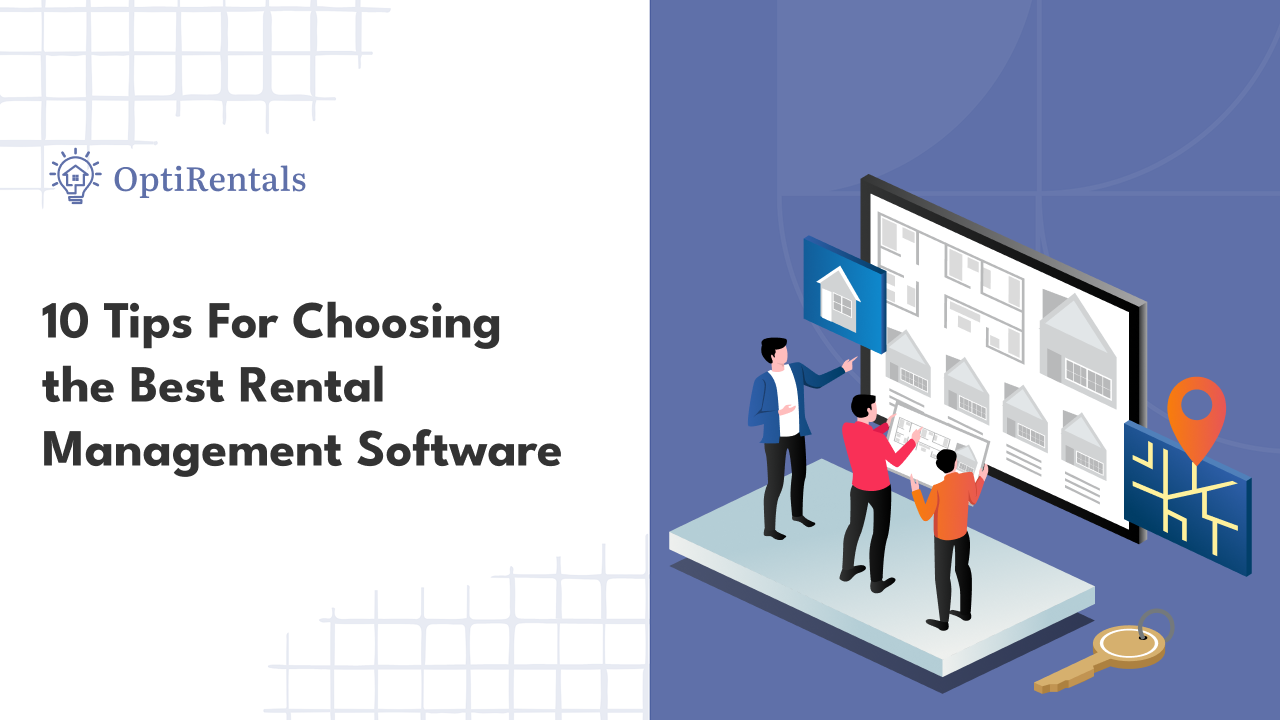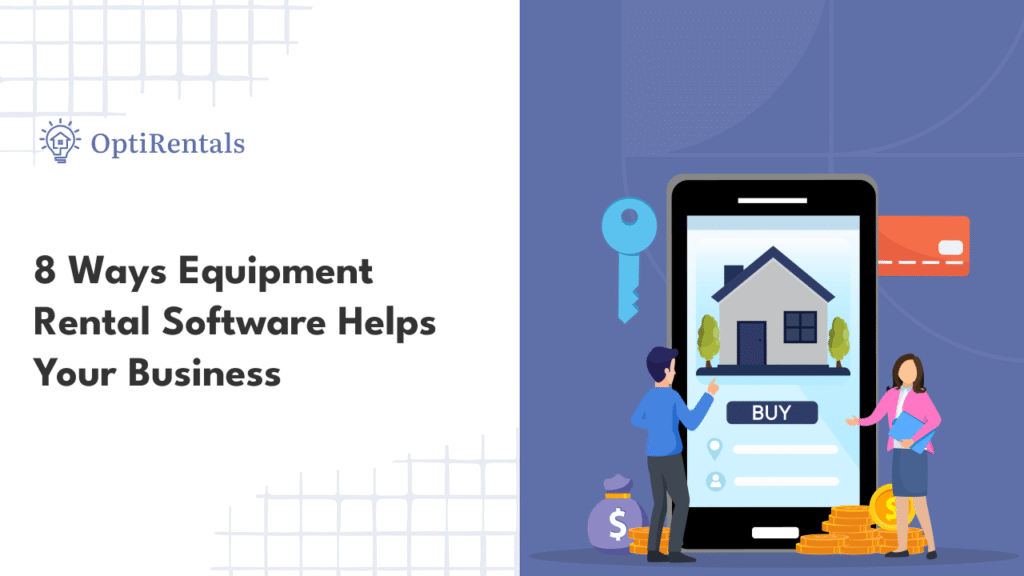Rental property management can be a difficult and time-consuming task. The system has many moving parts, ranging from handling requests for repairs to tracking rent payments. Software for rental management become essential in this situation. Property managers and landlords can boost productivity, keep organization, and reduce their business processes with the right tool.
To assist you in choosing the best rental management software for your needs, this article provides 10 beneficial recommendations. The right property management software will assist you save time and money, no matter how many properties you manage—one or hundreds.
1. Understand Your Property Management Needs
Before you choose any software, determine what you need it to do. Do we handle a portfolio that includes commercial spaces in addition, or are you only in control of a handful of residential properties? While certain options include features like accounting, tenant screening, and lease tracking, others focus on basic rent collection.
Make a list of everything you do on a regular basis. This will help you in combining the features given by different rental property software platforms with your needs.
2. Check for Automation Features
Automation has an opportunity to transform rental management. Look out software able to automate processes like:
- Sending rent reminders.
- Calculations of late fees
- Notifications of lease renewal
- Maintenance tracking.
You may minimize errors and save on human labor by automating tasks. Reliability is also maintained by automation, especially when monitoring several units.
This is important when choosing the best software for a rental business.
3. Consider Cloud-Based Solutions
You have access to your data from any device at any time using online or internet-based software. When you manage properties in multiple locations or have to be on your own, this is perfect.
Your data will be safely maintained in the cloud with the best online property management software, that also offers automatic backups and real-time access to financial reports, landlord communications, and various other information.
4. Look for Tenant and Owner Portals
Tenants and, if applicable, property owners must have access to an online portal in an effective rental management software.
Using their Software, tenants can:
- Submit rent payments.
- Send in requests for maintenance.
- Analyze leasing contracts
Property owners can use it to:
- Check financial reports.
- Track the performance of the property.
- Interact with supervisors
This increases transparency and reduces the volume of emails and phone calls you must respond to.
These types of portals are offered through several of the best rental property management software systems.
5. Evaluate Ease of Use
Complicated software may be hard to comprehend or avoid regular usage. Choose a system with a user interface that is clear throughout all times. The software should ideally have:
- Easy navigation
- Simple and clear labeling
- An perfect dashboard
Use a free trial or try a demo version. Verify your skills are at home with the design and the data entry and access method.
6. Check Payment Integration Options
An important aspect of property management is collecting rent. Tenants must be able to pay their rent online through the integrated features in your program.
Look for features such as:
- Payment using credit or debit cards
- ACH transfers through banks
- Invoices generated automatically
- Regular payments
The result offers quick, safe, and convenient payments for both you and your tenants.
Today, any rental management system needs to have these features.
7. Review Customer Support Availability
Reliable client service is essential especially if you don’t have very knowledgeable about technology or experience a system fail to function. When selecting software, see if the provider provides:
- Phone and email assistance
- Live chat support
- An information base or service center
- instructional videos
The top best rental management software suppliers will provide strong customer service to assist you in times of need.
8. Make Sure It Includes Financial Reporting Tools
Monitoring revenue and expenses is a part of running a rental business. Accounting reporting functions should be involved into the application you select. These tools needs to allow us to:
- Generate statements of profit and loss.
- Maintain tabs on each property’s income and expenditures.
- Import information for tax
- Adjust financial transactions.
Planning, audits, and tax season all depend on this. The best software for a rental business frequently has these capabilities.
9. Scalability for Future Growth
Your software requirements can differ as your firm expands. Choose a system that will develop with your company. This suggests:
- Helping more team members or users
- Supervising other properties
- Adding complex functionality without having to change platforms.
Some applications are basic at first, but as your needs develop, they add more functionality.
OptiRentals, which is made to accommodate both small landlords and large property managers with an expanding portfolio, is an excellent illustration of flexible software.
10. Compare Pricing and Contract Terms
The platforms may have quite different prices. Many can take just a little of your rental money, and others impose an annual fee. Keep an eye out for any possible unclear costs, such as those for:
- Increasing the number of units
- Getting access to premium features
- Making payments online
Verify that you are mindful of the full cost and whether there are any cancellation or agreement fees. To figure out what you’re getting for the money, usually compare a few products.
The fundamental features on some platforms that claim to provide the best online property management software can be purchased at an extra cost.
Conclusion
Finding the proper leasing software is established by your specific needs, budget, and long-term ambitions. When choosing a tool, take some time studying, testing, and analyzing them. The best rental management software, when properly chosen, will assist you in increasing tenant satisfaction, optimizing procedures, and growing your business more efficiently.
FAQs
Q1. What is rental management software?
Rental management software is a digital tool that is used for rent collection, tenant screening, lease tracking, maintenance management, and other related functions by landlords and property managers.
Q2. Is free rental property software reliable?
Very small landlords may find some free tools adequate, but generally, such tools would not offer as much support, while the fee-added tools have added features, functions, and fewer limitations.
Q3. Can rental software help with taxes?
Many platforms offer financial reporting features to develop income and expense records, provide reports, and prepare tax filings.
Q4. How secure is online rental software?
Good online rental service management software companies usually have safety measures for data protection, such as encryption and a secure server, so you have to check up on the platform’s safety measures before joining.
Q5. What is the most important feature in rental management software?
It depends on what you need for your property management business, but usually people ask for online rent collection, maintenance tracking, and automated lease management as their top three most important features.

